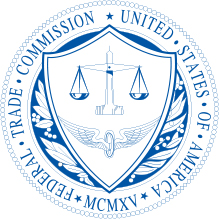At its July 21, 2021, Open Commission Meeting, the FTC voted along party lines to rescind its 1995 Policy Statement Concerning Prior Approval and Prior Notice Provisions in Merger Cases (1995 Policy Statement).
When it adopted the 1995 Policy Statement, the FTC abandoned what had become routine practice: requiring that transacting parties agree to obtain prior approval, and/or provide advance notice, of future acquisitions within the relevant product and geographic markets.
As a result of this substantial departure from longstanding policy, there is widespread concern that the FTC will expand significantly its exercise of authority over the merger and acquisition activities of companies that enter consent orders with the agency.
The two Republican Commissioners have made their objections to this action known. Commissioner Noah Joshua Phillips issued a Dissenting Statement and Commissioner Christine Wilson posted the text of her oral remarks to the FTC's website "[t]o facilitate transparency."
* * *
After objecting to the majority's decision to rescind the 1995 Policy Statement "with the minimum notice required by law, virtually no public input, and no analysis or guidance," Commissioner Phillips set forth two substantive criticisms in his Dissenting Statement.
First, he argued that, by once again broadly subjecting merging companies to prior approval and/or notice provisions, "the majority chooses to impose a decade-long M&A tax on anyone who enters a merger consent." This, he maintained, will discourage companies from entering consent decrees and, in turn, "abrogate" the Hart-Scott-Rodino Act of 1976, which "Congress enacted … to protect the public from anticompetitive mergers and acquisitions before they occur."
With the 1995 Policy Statement no longer in place, Commissioner Phillips concluded that "companies will be less likely to work with the Commission to resolve competitive concerns – contrary to the express purpose of the HSR Act, and leading to less efficient merger enforcement. As consent negotiations become more difficult, we will have to go to court more – wasting precious taxpayer dollars, and accomplishing less."
Second, he argued that "[a] blanket policy of routinely requiring prior approval" unreasonably will place at a competitive disadvantage those subject to consent decrees, as they "may have to bid higher … to compensate the seller for the uncertainty and the longer lead time required to obtain prior approval."This, in turn, will lead to suboptimal transactions, create inefficiencies, and reduce overall consumer welfare.
* * *
Commissioner Wilson offered three primary reasons for her opposition to the agency's decision to rescind the 1996 Policy Statement. First, she questioned why the majority chose to remove this important "guardrail to prevent … questionable exercises of enforcement discretion."
Commissioner Wilson pointed out that the 1995 Policy Statement was implemented "following nearly nine years of highly resource-intensive litigation undertaken by the FTC against an abandoned transaction" involving the Coca-Cola Co. (Coke) and the Dr Pepper Company that "some observers viewed … [as] a punishment for Coke's temerity to exercise its legal rights and litigate."
By contrast, a contemporaneous attempt by PepsiCo, Inc. to acquire Seven Up Co. was abandoned without a fight when the agency voted to challenge it – that is, without a legal challenge – and therefore did not lead to the imposition of a prior approval order.
Questioning the "purported rationale" put forth by the majority – that the justification for rescinding the 1995 Policy Statement "lies in saving agency resources that it would otherwise spend to review a transaction the Commission previously considered" – Commissioner Wilson expressed her concern "that the Commission intends to revert to the vindictive approach that led to the nine-year litigation against Coke" and "fear that rescinding the policy statement is being sold to the public under false pretenses."
Second, Commissioner Wilson highlighted the fact that, even with the 1995 Policy Statement in place, the FTC could, and often did, incorporate prior approval and/or notice provisions into consent decrees under certain scenarios, such as "where there [was] a credible risk that a company would attempt the same or approximately the same merger" or "would engage in an otherwise unreportable anticompetitive merger."
Raising doubts as to "whether rescission of this policy will facilitate further constructive use of" such provisions and echoing the sentiment of Commissioner Phillips, she expressed her fear that instead "it will facilitate a massive end-run around Hart-Scott-Rodino ('HSR') filing requirements and, for mergers subject to prior approval provisions, a shifting of the burden of proof that will chill procompetitive deals and hurt consumers." Such a drastic step, she argued, should only be taken by Congress.
Third, Commissioner Wilson agreed with Commissioner Phillips that, "by rescinding the 1995 Policy Statement without providing further guidance, the Commission substitutes uncertainty for a policy that has worked for more than 25 years." In that regard, she noted that this action will create a conflict between the FTC and the Department of Justice's Antitrust Division, which takes a similar approach to prior approval provisions as the FTC did pursuant to the 1995 Policy Statement.
Commissioner Wilson also took issue with the majority's decision to rescind the 1995 Policy Statement without first seeking input from the public, a step the FTC did take prior to its adoption.
* * *
Finally, I would be remiss if I didn't mention that Commissioner Phillips and Commissioner Wilson both participated in a Fireside Chat with FSF President Randolph May in March as part of the Free State Foundation's Thirteenth Annual Telecom Policy Conference. Video of that wide-ranging discussion is available here.





